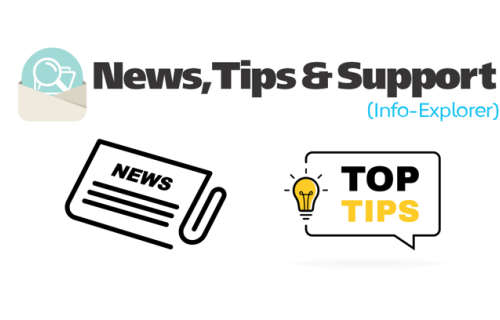In a recent Orchid article, we tried to separate the hype from the reality of Continuous Accounting. This month we do the same with the hottest of all buzz terms, Artificial Intelligence. Or, more specifically, AI Accounting.
To start with, these two articles on Sage.com got our attention:
- AI accounting: revolution, impact, and future, by Nicola Wright.
- How to unlock AI’s potential in your accounting practice, by Daniel Heathcote.
Much of the content below references those articles, as well as other sources.
The What & Why of AI Accounting
Nicola’s introduction described the drive towards “automating manual processes, improving accuracy, and speeding up workflows”. That sounds a lot like the essence of Continuous Accounting…but this time with a liberal dose of AI secret sauce, plus a sprinkle of AI-driven analytics, thrown in.
That overlap wasn’t lost on Daniel, who sees AI as a key enabler of Continuous Accounting:
As AI technology evolves, it promises to bring about continuous accounting innovations, such as real-time data processing and advanced forecasting…
The high-level payoffs of AI also sound familiar: Removing repetitive, manual, error-prone, and time-consuming tasks, thereby freeing up accountants to focus on more strategic work.
That all sounds a little vague but, to be fair to Nicola, she does admit that AI is an umbrella term - and one for a very big, rapidly expanding umbrella at that. Her list of the ways that AI-based technology is showing up in accounting, based on a Sage-sponsored survey of 1,000 accountants and bookkeepers across the UK, includes:
- Machine Learning, for data categorisation, predicting trends, and detecting anomalies.
- Data Analytics, for providing real-time insights, creating financial forecasts, and supporting more strategic decision-making.
- Generative AI tools, such as ChatGPT, for generating digestible written content from vast amounts of data.
- AI Assistants, such as Sage Copilot, for offering actionable insights and handling administrative and repetitive tasks in real time.
When looking at specific use cases and benefits, those mentioned in the articles above include:
- Automating everyday tasks: E.g. data entry, invoice processing, and transaction categorisation.
- Fraud detection: AI’s pattern-matching capability is very well suited to identifying anomalies that might indicate fraud.
- Client communication: E.g. the use of chatbots to interact with clients by answering common questions, scheduling appointments, and collecting information.
Regarding Generative AI and chatbots, Kevin Phillips, CEO at IDU, had some interesting observations about their limitations and risks in his recent LinkedIn post, The AI buck still stops with the humans. Kevin’s short article is well worth a read, but his conclusion could be summarised as:
It is flawed, has no common sense, and should be fact-checked instead of being blindly trusted.
What’s the Buzz?
Nicola Wright goes straight for the big red buzzer, suggesting that:
Right now might be the most exciting and revolutionary period accounting has ever seen…the adoption of AI tech is changing the fabric of accounting as you know it.
It doesn’t get much buzzier than that! But to me, all that buzz sounds a bit like an alarm bell ringing.
What’s the Reality?
I think Aaron Spool is on the mark in this Forbes article, AI Hype Vs. AI Reality For Finance And Accounting, when he kicks off with the quote:
Artificial intelligence is no match for human stupidity.
He then goes on to provide some examples of where the hype confronts the reality. Those I’ve expanded on below are consistent with themes I’ve seen raised in many other articles and presentations.
Data Quality
Many if not most objective analyses of AI start with the “garbage in, garbage out” axiom as the leading barrier. This has been a truism since the earliest days of data processing, but has particular relevance when it comes to AI:
For AI to be effective, the data has to be clean and high-quality for training the model, and then maintained at high quality.
That bar will prove high for any organization and, I dare say, too high for most.
Choice of Tools (and Partners)
For businesses looking to invest in AI, where do you start? There are many consulting firms and software providers keen to offer their services and solutions, but Daniel Heathcote provides a word of caution:
Today’s investments may quickly become obsolete. As the sector evolves, winners and losers will shake out.
In the meantime, he suggests we “stay agile and avoid relying on a specific AI solution.” Some strategies to consider that might help to reduce risk:
- Dip your toes in the AI water with public-domain or open-source AI tools, rather than getting locked into arrangements with partners that insist on the use of proprietary tools.
- Many providers of business software, including major accounting packages, are already investing heavily to incorporate AI capabilities. That may well allow you to start reaping some AI benefits by stealth, while minimising your investment and risk.
Regulatory Compliance & Ethics
- Governments and regulators are waking up to the risks of AI, but are still very much in catch-up mode.
- Much of the media interest is in social media disinformation, deep-fake tools, etc., but you can expect this to spill into business applications, particularly when it comes to the privacy and misuse of personal and client data.
- Make sure you don’t get caught on the wrong side of the ledger should the regulators come knocking!
Final Thoughts & Predictions
Nicola Wright’s closing remarks included the observation that:
No one can predict exactly where AI accounting will take us next.
That sounds hard to argue with, but would AI itself beg to differ? I asked Chat GPT if it could predict what AI Accounting will look like by 2030. Unsurprisingly, it showed no such modesty, instantly providing a long list of predictions. I’ve cherry-picked some of the more interesting ones:
- Complete Automation of Data Entry and Reconciliation: AI will handle all repetitive and routine tasks such as data entry, transaction categorization, and bank reconciliation.
- Real-Time Auditing: Continuous auditing using AI-driven systems will become standard, with transactions being automatically verified and flagged for anomalies in real time.
- Predictive Analytics and Forecasting: AI will offer more advanced predictive analytics, helping businesses forecast financial outcomes, manage cash flow, and optimize financial strategies with high accuracy.
- Advanced Risk Management: AI systems will analyze vast amounts of data to identify potential risks, compliance issues, and fraud, offering early warnings and actionable insights.
- Personalized Financial Advice: AI will serve as a virtual CFO, providing personalized financial advice to businesses based on real-time data, market trends, and historical performance.
- New Skill Sets: The role of accountants will shift towards becoming data scientists, AI ethicists, and strategic advisors. Continuous learning and upskilling in AI, data analytics, and technology will be crucial.
- Global Financial Systems Integration: AI will contribute to the harmonization of accounting standards globally, making financial reporting more consistent across borders.
- Enhanced ESG Reporting: AI will play a key role in environmental, social, and governance (ESG) reporting, helping businesses track and report their sustainability efforts with greater accuracy.
And Chat GPT’s final words on the subject:
By 2030, AI in accounting will not only streamline and enhance traditional accounting tasks but will also redefine the role of accountants as strategic business partners, blending technology with human expertise.
Does that sound like reality, or just more hype? I’ll let you be the judge. My best guess?
AI will creep into the lives of accountants at vastly different rates. In the short to medium term, many of the more exotic applications will largely remain the domain of the top end of town.


